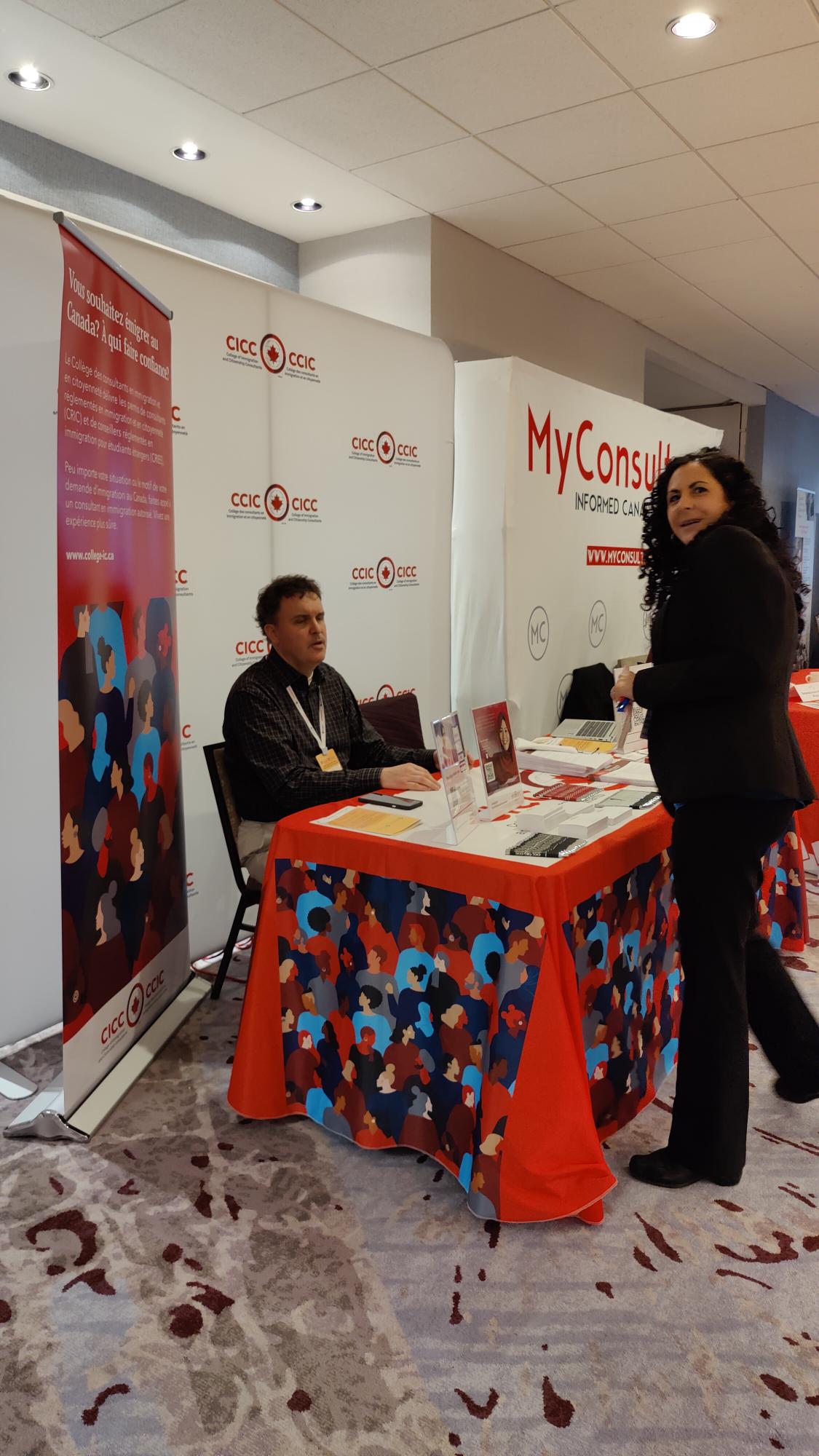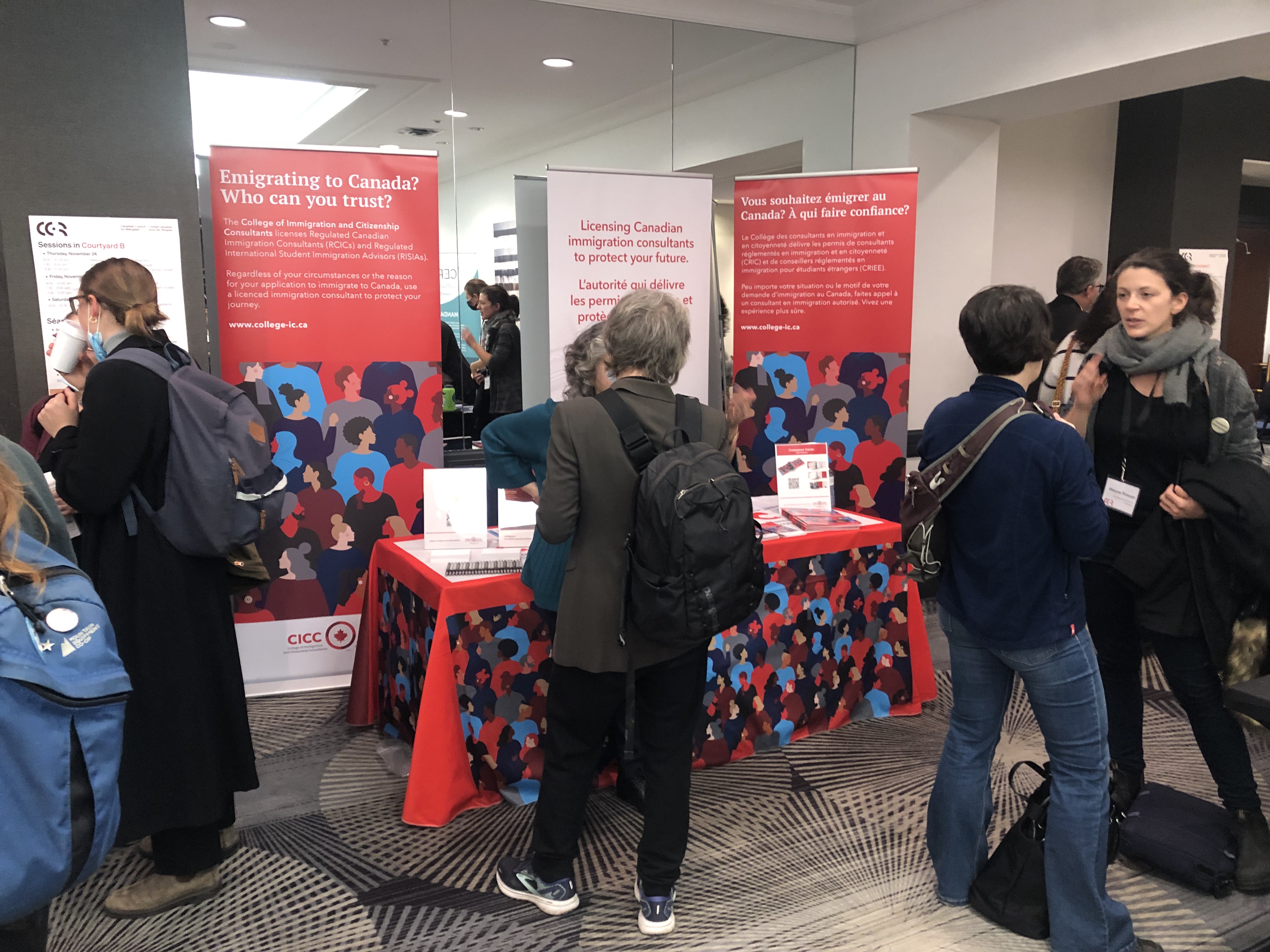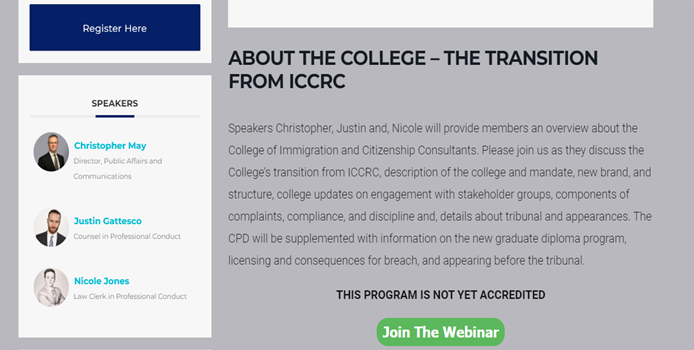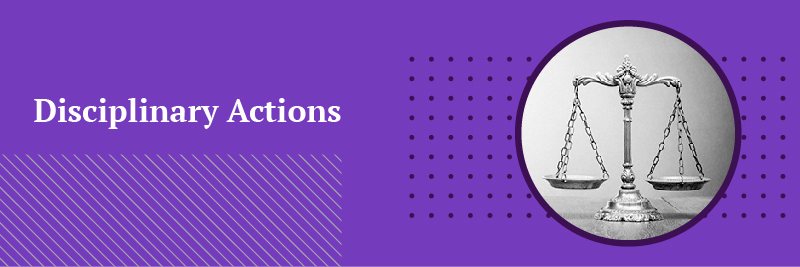
In this edition:

Staying Abreast of Immigration Policies and Guidelines
Tips for a Successful RCIC Practice Series
This is a first in a series of articles geared towards providing advice to licensees on how to achieve success in their immigration practice.
After speaking with a few RCICs about their business and what is integral to its success, several spoke about the importance of staying up to date and relevant on immigration policies and guidelines.
Clients of immigration consultants are, a lot of the time, people in difficult situations, often seeking advice from outside of Canada and relying on the knowledge that you, as RCICs have to offer. It is therefore critical that the information you provide is accurate, up to date and comprehensive to ensure the best outcomes for your client.
Some sources regularly referenced by RCIC Ben Fok, include IRCC’s Operational Instructions and Guidelines (OPS) and other news from IRCC. If you are tasked with a job in an area where you are not fully knowledgeable, it is critical to inform clients of this and either co-counsel or refer them to a colleague who does have the necessary knowledge. “Sharing the work and profit is a great strategy to enhance [client] service”, says Ben Fok in Vancouver.
Hjalmar Leon, an RCIC also in Vancouver, regularly reviews RSS feeds and social media sources including industry lawyers and RCICs on Twitter and on LinkedIn. Additionally, he is a member of an immigration education association that provides up-to-date educational resources and events, which count towards your CPD hours. Registering for automated update notifications ensures important updates are not missed. For example, IRCC provides this link to register for notice emails; Google news allows you to designate topics and key words to appear in your feed; and becoming a member of CAPIC is useful as key updates are shared to their membership.
Staying in touch with colleagues you meet at conferences and at professional development events is key. Through these contacts you can learn about new developments in the sector, discuss their implications on your business and expand your professional network.
In some areas such as permanent residency (PR), changes are frequent, and RCICs who do not keep up with the most current information are prone to making mistakes that will impact their clients and their business. The Start Up Visa program initially had an 8-month waiting period for PR but has now turned into a 26 to 32-month wait. Ben Fok recommends consultants to avoid ‘”locking in” any processing times when communicating with the client as any changes that happen after, are out of their control.
Confidently providing the most up-to-date information ensures you are fulfilling your professional obligations competently. It also translates into well-served and satisfied clients who will hopefully tell their friends and family about your immigration practice.

Mentoring Program
Many regulated professions require that prospective licensees gain practical experience. This helps to standardize the quality of practice and positions new licensees for career success.
Based on the conclusions of a Practical Experience and Member Engagement Survey and the analysis of the profession’s structure (mainly sole practitioners), the College determined that a period of mandatory mentoring for new licensees would be the most suitable form of practical experience. It proceeded to form a team of experienced licensees, subject matter experts and consultants to develop the mentoring program.
The first stream of the program to be launched, the RCIC New-Licensee Mentoring Program (Supervised Practice Stream) is mandatory for new RCICs who received their Letter of Authority on or after July 1, 2022 (read the article that follows). The Voluntary stream and the Remedial stream will be later developed (visit our Mentoring Program page to learn more).

Update – RCIC New-Licensee Mentoring Program Pilot
The RCIC New-Licensee Mentoring Program pilot launched on November 30, 2022 and will end on May 30, 2023.
RCICs who received their Letter of Authority between July 1 and September 30, 2022 are enrolled in the New-Licensee Mentoring Program Pilot. Enrolment is mandatory and there are no exceptions.
RCICs who received their Letter of Authority after September 30, 2022 will be required to enroll once the program launches in summer/fall 2023.
How can required RCICs enrol?
RCICs who received their Letter of Authority after September 30, 2022, and who are eligible to be part of the next group, will receive an email in summer/fall 2023 with an invitation to complete an application to enrol.
Program fees
Each mentee in the program is required to pay the $665 non-refundable program fee (plus applicable taxes), immediately following the program invoice being issued, pursuant to section 5.1 of the Supervised Practice Program Policy.
Please note that an administrative service fee of $150 will be applied to licensees who fail to complete a profile in MentorCity within 14 days of receiving the MentorCity invitation (Supervised Practice Program Policy s. 5.0).

Become a Mentor for the New-Licensee Mentoring Program
Make a difference in developing the next generation of RCICs by becoming a mentor! Build your leadership skills and strategic network while earning Continuing Professional Development (CPD) hours.
Who can be a mentor?
Participation as a Supervised Practice Stream mentor is open to RCICs:
- in good standing with at least 3 years of practice experience in one of the following areas:
o Citizenship
o Economic Classes
o Family Classes
o Study Permit
o Temporary Foreign Workers
o Super Visa
o Refugee and Humanitarian Considerations
o Quebec-specific Classes
- residing in Canada
- willing to commit approximately 4 hours per month for live, virtual meetings, for 6-8 months
Mentor support and resources
Mentors get ongoing support from the Program staff and access to a top-rated online mentoring platform.
How to apply to become a Mentor?
Click on the button below to complete a brief application by February 24, 2023.
Apply here
Outreach Activities
Staff from the College participated in several outreach events before the New Year.
Canadian Immigrant Fair (Vancouver) – November 3
The Canadian Immigrant fair welcomed newcomers to meet various stakeholders within the Canadian immigration space. Attendees had the opportunity to connect with employers, settlement agencies, and immigration services providers. Sabrina Cigana, Coordinator, Public Affairs spoke with fair visitors about the College and the importance of verifying their representative is authorized to provide immigration advice. The Canadian Immigrant Fair in Vancouver completed the series of fairs scheduled in 2022.

Guy Morissette at the Pathways to Prosperity (P2P) National Conference (Ottawa) – November 14-16
Pathways to Prosperity (P2P) National Conference (Ottawa) – November 14-16
Guy Morissette, Coordinator, Professional Compliance attended the P2P Conference which brought together Local Immigration Partnerships, government representatives, newcomer settlement agencies, and researchers. The P2P conference theme was, Next Gen Canada: Immigration and Diversity as Pathways to Prosperity. Feedback from the P2P post-conference survey indicated that conference attendees found the exhibitor booths to be interesting and useful.
Canadian Bureau for International Education (CBIE) 2022 Conference (Toronto) – November 14-16
Sabrina Cigana and Marilyn Braun, Coordinator, Communications attended the CBIE Conference and spoke to delegates on behalf of the College. CBIE welcomed members of Designated Learning Institutions and those a part of the international education sector to engage in conversations about the opportunities and responsibilities educators have in the international education space. Booth visitors, many of whom were licensees employed at either a university or college, picked up College items like pens, notepads, and the College’s consumer guide.
 Attendees at the Canadian Council for Refugees (CCR) 2022 Fall Consultation (Toronto) – November 24-26
Attendees at the Canadian Council for Refugees (CCR) 2022 Fall Consultation (Toronto) – November 24-26
Canadian Council for Refugees (CCR) 2022 Fall Consultation (Toronto) – November 24-26
Sabrina Cigana attended the CCR Fall Consultation. She also met with Jyoti Singh, Appointed Director of the College’s transitional Board, who presented at the consultation. The CCR consultation welcomed participants from various refugee and immigration stakeholders to learn and discuss the 2022 theme, Towards equity and anti-racism in Canada's immigration system. Sabrina Cigana spoke with attendees from settlement agencies and sponsorship agreement holders about the RCIC graduate diploma program and the RCIC-IRB class of licence. College educational material and consumer guides were picked up by booth visitors to share how the College protects the public interest.

CPD Event with the Ontario Paralegal Association (Virtual) – December 6
Staff from the College, in collaboration with the Ontario Paralegal Association (OPA), recently hosted a virtual CPD presentation for members of the OPA. Justin Gattesco, Counsel, and Nicole Jones, Law Clerk explained how the College transitioned from the Council. Justin Gattesco provided an overview of the Professional Conduct department and how it manages the College’s complaints and discipline process. Nicole Jones talked about the Complaints committee and how complaints received are screened and investigated.
Meetings with Government Representatives (Ottawa) – December 13-15
John Murray, President and CEO, visited Ottawa in December to meet and engage with several federal government representatives about the College and our role in protecting the public interest. Meetings were held with senators Ratna Omidvar and Tony Loffreda, as well as with members of the Standing Committee on Citizenship and Immigration including Members of Parliament Tom Kmiec, Brad Redekopp, Larry Maguire, Salma Zahid, and Marie-France Lalonde.

Annual CPD Audit
In 2022, the College selected RCICs at random to take part in a 2020 Continuing Professional Development (CPD) audit (January 1, 2020 to June 30, 2021) as per section 14 of the CPD Regulation for RCICs. The audit was completed to ensure RCICs were meeting the requirements of the Regulation. RCICs are required to complete 16 CPD hours per fiscal year and to properly report them.
Selected licensees were notified by email to submit the required documentation for the CPD audit within 30 days, regardless if they were on a leave of absence (except for those on an approved medical or retirement leave), suspended, had not yet taken any Practice Management Education (PME) courses, or had any clients.
To fulfill the CPD audit requirements, licensees were required to upload documented proof of completing their CPD requirements which includes
- proof of payment
- proof of registration
- proof of attendance
- certificates of completion
This year, the College will continue to select licensees to take part in the annual CPD audit. Notices will be sent out via email in April to those selected for the next audit.
Failure to comply with the CPD audit requirements will result in suspension of licence, followed by revocation should the requirements continue to not be met.
If you have any questions or concerns, please contact registrar@college-ic.ca.

New IAD Rules for Immigration Appeals
New Immigration Appeal Division (IAD) Rules for immigration appeals have come into force on January 14, 2023. Two key changes are highlighted, including i) the time limit to provide an appeal record and ii) the time limit to disclose documents in support of an appeal. For more information on these changes, we invite you to visit the Immigration and Refugee Board of Canada (IRB) website.
As per our rule, any changes to the immigration and citizenship legislation, regulations, and government policies and procedures made 90 days prior to an exam are not reflected in the exam questions. Accordingly, all licensees taking the Specialization Exam on April 12, 2023 will not be asked questions on new IAD Rules.

The College is looking for some talented professionals to join our team.
Do you or someone you know want to be part of a team that protects the public by overseeing regulated immigration and citizenship consultants and international student advisors?
Interested in any of these opportunities? Submit your resume and a brief cover letter indicating why you feel you are a fit for the role.
For more information on these positions and the most up-to-date College career postings, visit the College's Career page

The College’s Tribunal Committee is an independent adjudicative committee that hears and decides regulatory cases about an RCIC in accordance with the College’s core values of fairness, transparency, and public protection.
Below are summaries of the most recent decisions of the Tribunal Committee. Full decisions are available, without charge, on the Canadian Legal Information Institute’s (CanLII) website at:
https://www.canlii.org/en/ (please enter “ICCRC” or “College of Immigration and Citizenship Consultants” in the “Document text” field).
|
Discipline Committee Decision
|
|
Licensee
|
Kuldeep Kumar Bansal; R407527
|
|
Company Name/Location
|
Overseas Career & Consulting Services Limited
Surrey, BC |
|
Proceedings
|
Oral Disciplinary Hearing |
|
Findings
|
This matter relates to 6 separate complaints.
All complaints before the Discipline Committee were similar in nature. The RCIC and their company hosted seminars in a hotel in Dubai. Potential clients attended the seminars and heard directly the RCIC who represented that they would arrange Canadian employment and obtain a positive Labour Market Opinion (LMO), now Labour Market Impact Assessment (LMIA), for the clients within 6 months of entering into the retainer agreement. Attendees of these seminars signed a retainer agreement and paid the RCIC for their services. The RCIC did not perform the services they were retained to provide and failed to respond to communications and inquiries from the clients. In some situations, the RCIC and their staff also provided incorrect information regarding the status of clients’ applications and failed to take necessary steps to ensure the applications progressed. The RCIC provided either partial or no refund to clients when promised.
In one complaint, the RCIC advised the client they would only provide a refund if the client withdrew their complaint against the RCIC with the ICCRC.
In another complaint, the ICCRC investigator requested the RCIC provide a response to the complaint. The RCIC failed to provide a response to the investigator by the deadline assigned. Given the RCIC’s failure to respond to the investigation, their licence with ICCRC was administratively suspended. It was only after the administrative suspension was imposed that the RCIC provided a response to ICCRC’s investigator. As part of their response to the complaint, the RCIC provided ICCRC’s investigator with an LMO that had expired prior to the client retaining the RCIC. After the ICCRC’s investigator noted this fact to the RCIC, the RCIC then admitted to ICCRC’s investigator that an LMO had not yet been obtained when the client retained the RCIC. The RCIC’s provision of an expired LMO misled the ICCRC investigator. The RCIC provided misleading and dishonest information to the ICCRC investigator and failed to respond adequately and candidly. The RCIC failed to maintain a client account, as required by ICCRC Regulations, and represented to the ICCRC Investigator that they were exempt from the requirement of maintaining a client account, which they were not.
In these matters, a panel of the Discipline Committee found that the RCIC had committed professional misconduct or conduct unbecoming in breaching the following articles of ICCRC’s June 2012 Code of Professional Ethics: 3.1 – Serve Honourably; 4.1 – Maintain Integrity; 4.2 – Courtesy and Good Faith; 6.1 – Maintenance of Quality Service: An ICCRC member must conduct all elements of practice in a conscientious, diligent and efficient manner, and provide a quality of service at least equal to that which ICCRC members generally would expect of a competent member in a similar situation. An ICCRC member must at all time use best efforts to: 6.1.3 – Communicate with the Client at all stages of a matter in a timely and effective way; 6.1.5 – Answer reasonable Client requests in a timely and effective manner; 6.1.9 – Comply in letter and in spirit with the Code; 7.1 – Be honest and candid when advising clients; 12 – Provide the Client with a written retainer agreement or engagement letter that: 12.1.1 – clearly states the matter and scope of the services for which the ICCRC member is retained; 12.1.2 – fully discloses (i) the fees payable, such fees to be fair and reasonable in the circumstances; (ii) the disbursements to be charged; (iii) the payment terms and conditions a) by the hour or b) flat fee billing with payment by milestones or by predetermined date; (iv) schedule of payments; and, 12.1.3 – identifies the nature but not the amount of any other remuneration, such as but not limited to a referral fee, being or to be received by the ICCRC member in connection with the matter.
The panel of the Discipline Committee also found the RCIC had committed professional misconduct or conduct unbecoming in breaching the following articles of the ICCRC’s March 2016 Code of Professional Ethics: 3.1 – Duty of Good Faith; 6.1 – Maintenance of Quality Service; 7.1 – Honesty and Candour Required.
The panel of the Discipline Committee found that the RCIC had breached Article 4 of the Client Account Regulation.
|
| Outcome |
The RCIC was suspended for a period of the 15 months, less 12 months being recognized as time already served (suspension from October 12, 2022 to January 12, 2023). The RCIC is to complete by July 12, 2023 the following College Practice Management Education (PME) courses: Client File Management; Ethical Practice; Client Account; and Retainer Agreement. The RCIC is to complete 4 hours of Continuing Professional Development (CPD) activities covering such topics as ethical practice and professional standards, Labour Market Impact Assessment applications, temporary foreign workers’ and work permit applications. The 4 hours of CPD activities shall be in addition to the RCIC’s annual CPD requirements and cannot be counted as part of the RCIC’s existing annual CPD obligations. The RCIC is to make restitution to clients in the total amount of $10,453. The RCIC is to pay a fine of $15,000 to the College.
|
|
Costs
|
The RCIC is to pay costs to the College in the amount of $40,000 by January 10, 2023.
|
|
Discipline Committee Decision
|
|
Licensee
|
Ravi Hooda; R530187
|
|
Company Name/Location
|
Setu Immigration Services Inc.
Brampton, ON |
|
Proceedings
|
Written Disciplinary Hearing |
|
Findings
|
This matter relates to 2 separate complaints related to the same issues.
The RCIC posted a tweet in response to the Mayor of Brampton. The RCIC’s tweet contained language that others found to be offensive. There was significant public backlash and media coverage of the RCIC’s tweet and the RCIC was subjected to violent threats and harassment from certain individuals in relation to the tweet. The Real Estate Council of Ontario (RECO) informed the RCIC that a complaint had been made regarding their post. In connection with RECO’s voluntary dispute resolution program, the RCIC took a sensitivity course facilitated by Breakview Training, and the RECO complaint process was completed. The RCIC was required to report the RECO complaint to the College, including on their annual Good Character and Good Conduct Declaration. However, they provided blank forms. The RCIC made a charitable donation in the amount of $500 to the Halton Multicultural Council, in an effort to resolve concerns raised about the matters that form the subject of their complaint.
The RCIC admits that their conduct was in violation of the Good Character and Good Conduct Regulation in force and effect from May 13, 2016, and the Code of Professional Ethics as set out: Good Character and Good Conduct Regulation, Articles 4.2 and 5.3 (e); 2019 Code of Professional Ethics, Article 4.3.1.
|
| Outcome |
The RCIC has been ordered to complete 3 hours of continuing professional development (CPD) activities entitled: “Advancing Equality, Diversity, and Inclusion in the Legal Professions” and “To Be Fair and Ethical in Immigration Practice”. The RCIC is to write a 500-word written reflection paper on equality, diversity and inclusion in immigration practice. The RCIC is to submit a letter of apology addressing the public and one to the College Employee referred to in the Agreed Statement of Facts. The breach of any of the terms will result in a suspension of the RCIC’s practice and licence with the College for no less than 30 days and shall continue until the RCIC has fully complied with the terms.
|
|
Costs
|
N/A
|
|
Discipline Committee Decision
|
|
Licensee
|
Balbir Singh Hothi; R412031
|
|
Company Name/Location
|
Indica Immigration and Employment Inc.
Surrey, BC |
|
Proceedings
|
Written Disciplinary Hearing |
|
Findings
|
The RCIC entered into a Retainer Agreement with a client to complete an Express Entry application. The Retainer Agreement set out the total professional fees of $25,000 to be paid in 4 instalments. The client paid approximately a total of $2,800 in 3 instalments. The RCIC failed to provide a receipt or statement of account for the 3 payments. Following the RCIC’s advice, the client paid World Education Services for an assessment of their education credentials and was instructed to write an International English Language Testing System (IELTS) exam, which they completed. The RCIC forwarded to the client a copy of an immigration application for Prince Edward Island belonging to another client. There is no evidence that the other client authorized the release of these documents to the client in this matter. The client sent numerous communications to the RCIC but received no reply. The client did not receive any draft application for immigration to Canada but was subsequently advised by the RCIC that the application process had been started. The RCIC did not respond to the client’s request for a refund. The RCIC emailed the client and provided them with an approval letter that belonged to another client of the RCIC. There is no evidence to suggest that the other client authorized the release of these documents. The RCIC stated that they were in the final stages of uploading the client’s Express Entry profile and that it would be completed the next day. The client never received any confirmation that an Express Entry application had been submitted on their behalf.
The Discipline Committee Panel concluded the RCIC had breached the following articles of the 2016 Code of Professional Ethics: 2.2.9 – Professional Misconduct; 3 – Duty of Good Faith; 6.1 – Maintenance of Quality Service; 7.1 – Honesty and Candour Required; 8 – Duty to Maintain Confidentiality; and 14.2 – Obligation to Respond to ICCRC. Additionally, the Panel found that the RCIC had breached Section 24.1 of the College’s By-law – Required Familiarity and Compliance and Section 44 of the College of Immigration and Citizenship Consultants Act – Standards of professional conduct and competence. |
| Outcome |
The RCIC’s licence with the College is currently administratively revoked, however, should the RCIC seek reinstatement of their status and their request be granted by the Registrar, the RCIC will be suspended for a period of 6 months effective the date of the reinstatement of their status with the College.
The following College Practice Management Education (PME) courses are to be completed by the RCIC within 6 months of the date of reinstatement of their status with the College; the suspension will, however, remain in effect until such time as the courses are completed: Complaints and Professional Conduct; Client File Management; Client Account; Agents; Retainer Agreement; Ethical Practice; Developing the RCIC and Client Relationship; Managing an Immigration Consulting Practice; and Planned or Unplanned Absence. The RCIC is to pay a fine of $3,500 to the College.
|
|
Costs
|
The RCIC is to pay costs to the College in the amount of $9,700.
|
|
Discipline Committee Decision
|
|
Licensee
|
James Norris; R416599
|
|
Company Name/Location
|
James Norris Limited
Victoria, BC |
|
Proceedings
|
Written Disciplinary Hearing |
|
Findings
|
This matter relates to 2 separate complaints.
Complaint #1
The RCIC was retained by the client to assist with a Labour Market Impact Assessment (LMIA) for themselves and their family. The client’s work permit was successfully prepared by the RCIC but was set to expire. The RCIC did not notify the client of this deadline, they instead submitted an application for restoration of temporary resident status and for a bridging open work permit on the basis that the client had applied for permanent residency under a Provincial Nominee Program (PNP). The restoration of temporary status and bridging open work permit applications were submitted by the RCIC without the client’s knowledge or approval and the RCIC inserted copies of the client’s signature without the client’s knowledge or consent. The RCIC provided answers to questions on or in relation to the applications without the client’s knowledge or consent that were incorrect or not yet verified, including representing that the client was under the impression that they did not need to extend their work permit as they were approved for permanent residency and that they had just discovered on that day that they needed to keep their work permit valid. The applications were denied on the basis that they were not submitted on time and they lacked proof that a permanent resident application was submitted. The RCIC did not inform the client of the situation until approximately one month after learning of the refusal. The refusal letter denied the client’s restoration and work permit applications and informed the client that they no longer had valid status in Canada. The RCIC failed to advise the client that they would have to depart Canada immediately when receiving the refusal letter and failed to explain the possible consequences of remaining in Canada for their other immigration applications. The client subsequently obtained permanent residency in Canada.
The RCIC submitted 2 LMIA applications on behalf of the client’s brother; however, they were returned because they were incomplete and contained errors.
The RCIC acknowledged that they breached the following articles of the 2016 Code of Professional Ethics: 5.1.1 – Duty of Continuing Competence; 6.1.1 – Maintenance of Quality of Service; 6.2.1 – Delivery of Client Documents and 7.1.1 – Honesty and Candour Required.
Complaint #2
The client entered into a retainer for the RCIC to act on their behalf with respect to an application under British Columbia Government’s Provincial Nominee Program (BCPNP). The professional fees under the Retainer Agreement were $4,000 to be paid in 2 instalments. The client remitted a payment of $2,000 CA to the RCIC for which a receipt was issued. The client was working in Canada on a work permit (WP), which was about to expire and the RCIC submitted a WP extension application on behalf of the client to Citizenship and Immigration Canada (CIC). The RCIC agreed to assist the client with an LMIA application. The RCIC told the client that they had submitted an LMIA application for them. The RCIC received a refusal letter from CIC advising the client’s WP extension application had been denied. The refusal letter stated that the client did not possess a valid LMIA, which they needed to obtain from their prospective employer, and that the client’s temporary resident status had expired and that unless they applied for restoration of their status within 90 days of the expiry of their temporary resident status, they would remain a person without legal status. The RCIC failed to advise the client of the information set out in the refusal letter, which resulted in the client overstaying their temporary resident status. The RCIC later informed the client that their application had been refused and falsely told the client that they had not heard from CIC regarding their WP application. The RCIC encouraged the client to apply for an electronic travel authorization (ETA), even though the RCIC knew that at that time the client was already in Canada and without legal temporary resident status. As part of the ETA application, the client indicated that they had never had a visa or WP refused. This information was false in light of the denial of the client’s WP application as set out in the refusal letter. However, because the RCIC had not advised the client of the refusal letter, the client was not aware that the information they had provided in their ETA application was false. The RCIC applied to the BCPNP on the client’s behalf. However, the RCIC knew or ought to have known that the client was required to submit a valid English language test report that had been obtained within 2 years prior to the date of the BCPNP application submission. Despite this requirement, the RCIC failed to advise the client that they needed to obtain an updated English language test report prior to submitting the BCPNP application. The RCIC submitted the client’s expired English language test report as part of the client’s BCPNP application. The British Columbia government advised that the client’s application to the BCPNP was denied, partly on the basis of the failure to submit a valid English language test report for the client.
The RCIC acknowledged that they breached the following articles of the 2012 and 2016 Code of Professional Ethics:
2012 Code: 5.3 – Standard of Service; 6.1 – Maintenance of Quality Service; and 7.1 – Honesty and Candour Required.
2016 Code: 2.2.3 – Conduct Unbecoming a Member; 3.1 – Duty of Good Faith; 6.1 – Maintenance of Quality Service; 6.2 – Delivery of Client Documents; and 7.1 – Honesty and Candour Required.
|
| Outcome |
The RCIC was suspended on December 17, 2022 for a period of 4 months, during which the following College Practice Management Education (PME) courses are to be completed by the RCIC: Client File Management; Ethical Practice; and Managing an Immigration Consulting Practice. The RCIC is to pay a fine of $8,000 to the College and a reprimand is to be issued and placed in the RCIC’s file.
|
|
Costs
|
The RCIC is to pay costs in the amount of $2,500 to the College.
|
|
Discipline Committee Decision
|
|
Licensee
|
Ramandeep Sood; R510854
|
|
Company Name/Location
|
Rainbow Immigration Ltd.
Winnipeg, MB |
|
Proceedings
|
Written Disciplinary Hearing |
|
Findings
|
The RCIC assisted a client, an Indian national who had applied for the Manitoba Provincial Nominee Program (MPNP). The client received a letter from the MPNP notifying them that they were eligible to apply for a Permanent Resident visa. However, the client later received an email from Citizenship and Immigration Canada (CIC) advising that their application had been rejected. At some point, the client informed the RCIC of the application rejection and requested their assistance. The RCIC advised that they would make inquiries related to the client’s application and explore whether an appeal could be filed with CIC. The RCIC contacted a lawyer on behalf of the client regarding whether an appeal could be made to CIC. An acquaintance of the client deposited $4,000 into the RCIC’s personal bank account. However, the RCIC did not issue a payment receipt to the client nor the acquaintance. The RCIC did not adequately respond to the client’s requests for updates. The client requested a full refund of the monies transferred to the RCIC and the RCIC transferred $4,000 in 2 instalments to the acquaintance through their business account.
The RCIC admitted they were in breach of the following articles of the Code of Professional Ethics:
2012 Code: articles 5.2, 6.1.3 and 12.1
2016 Code: article 6.1.1(iii)
|
| Outcome |
The RCIC is to complete the following College Practice Management Education (PME) by June 15, 2023: Client Account; Developing the RCIC and Client Relationship; and Retainer Agreement. The RCIC is to pay a fine of $1,000 to the College by January 14, 2023.
|
|
Costs
|
N/A
|
|
Discipline Committee Decision
|
|
Licensee
|
Hari Sreedharan; R419703
|
|
Company Name/Location
|
Future Consulting Group
Mississauga, ON |
|
Proceedings
|
Written Disciplinary Hearing |
|
Findings
|
This matter relates to 2 separate complaints.
Complaint #1
The RCIC’s registration to practise as an immigration consultant in Quebec was revoked by the Quebec Ministry of Immigration, Diversity and Inclusion (“Quebec Ministry”). The revocation was due to the RCIC’s failure to meet French-language requirements. The RCIC had many outstanding files before the Quebec Ministry. Although the RCIC did not take on new Quebec files after their revocation by that authoritative body, they continued to assist ongoing clients in contravention of Article 12.4.2 of the Act Respecting Immigration to Quebec. The RCIC did this by allowing their clients to continue to use the RCIC’s mailing address and email address for correspondence with the Quebec Ministry. The RCIC sent numerous letters to the Quebec Ministry on behalf of their clients, more than 3 years after their revocation, making inquiries about the status of their files. In these letters, the RCIC provided their mailing address and email address to the Quebec Ministry for the purpose of further communications. Many of the clients were prejudiced as a result of the RCIC’s actions. The Quebec Ministry rejected numerous applications on the grounds that the applicants failed to disclose that they had paid an individual, such as the RCIC, to represent them in the application process, contrary to section 3.2.1 of the Act Respecting Immigration to Quebec. Ten of the RCIC’s former clients whose applications were rejected brought a judicial review to the Superior Court of Quebec. The judicial review was successful based in part on findings about the RCIC’s misconduct. The RCIC has since taken responsibility for their wrongdoing and paid significant sums to reimburse clients for the fees the clients paid to the RCIC. The RCIC also paid the legal fees of the lawyer who brought the judicial review on behalf of their 10 former clients, and the RCIC cooperated with the judicial review by swearing an affidavit admitting to their own misconduct.
Complaint #2
The RCIC entered into an agreement with an agency in Colombia to act as the immigration consultant for its clients regarding their applications to immigrate to Canada. The client entered into a contract with the Colombian agency for immigration services to immigrate to Canada, and the client and their spouse paid fees to the Colombian agency. The RCIC submitted an application for permanent residence on behalf of the couple. This was when the couple learned that the RCIC would be their representative; they did not have any agreement with the RCIC. The couple attended an interview with the Quebec Government and, after the interview was successful, their application was submitted to Citizenship and Immigration Canada (CIC) for further processing. Later, CIC sent a letter to the RCIC requesting further documents about the couple’s application, with a deadline of 60 days. CIC sent a further letter to the RCIC requesting further documents about the application, with a deadline of 30 days. The letter warned that if additional documents were not received, the application would be reviewed based only on the documents already provided and the applicants would risk the refusal of their application. The RCIC did not forward the above letters to their clients because the RCIC did not have their contact information and the Colombian agency with whom the RCIC had an agreement had closed. The RCIC’s staff successfully contacted the clients and advised them of the letters from CIC requesting additional documents. Supporting documents were finally submitted well past the deadline provided by CIC. Unfortunately, one of the clients was unable to provide the required police clearance document and the application was refused by the Embassy in Mexico. The delay was not the reason for the refusal.
Notwithstanding the communication and other failures, the RCIC did attempt to assist the clients and the RCIC did so despite not receiving payments for their efforts since all fees had been paid to the Colombian partner agency which had closed.
The RCIC admitted to breaches of the following articles of ICCRC’s March 2016 Code of Professional Ethics:
15.1 – Dealings with the Government of Quebec; 15.1.1 A Member practising in the Province of Quebec having any dealings with the Government of Quebec on immigration-related matters shall adhere to An Act Respecting Immigration to Quebec, including French language requirements and knowledge of relevant Quebec laws; 15.2 – Non-Adherence to An Act Respecting Immigration to Quebec; 15.2.1 A Member practising in the Province of Quebec who does not adhere to the Act Respecting Immigration to Quebec shall, in any federal proceeding where a Quebec immigration matter arises, direct Clients to seek advice and/or representation about Quebec legislation and programs from another Member or member of a Designated Legal Regulatory Body, who meets the requirements of the Quebec immigration legislation; 15.3 – Violation of Quebec Immigration Laws; and 15.3.1 A Member who commits any violation of the Quebec immigration laws shall be deemed to have engaged in Professional Misconduct.
The RCIC also admits to breaches of the following articles of the June 2012 Code of Professional Ethics: 3.1 – Serve Honourably; 6.1 – Maintenance of Quality Service; 6.1.1 – Meet all applicable deadlines; 6.1.3 – Communicate with the Client at all stages of a matter in a timely and effective way; 6.1.5 – Answer reasonable Client requests in a timely and effective manner; and 6.3 – Supervision of Agents and Staff;
|
| Outcome |
The RCIC was permitted to resign their licence with the College, effective December 30, 2022, and must sign a statutory declaration wherein they will undertake to never again apply for readmission as a licensee of the College. The RCIC is to pay restitution to the complaint #2 clients in the amount of $2,000.
|
|
Costs
|
The RCIC is to pay costs to the College in the amount of $3,000.
|